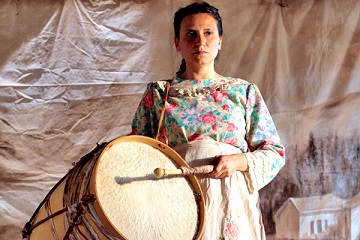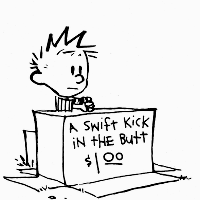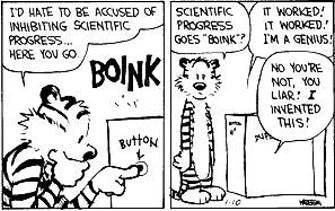As the team sets out, they find themselves once again braving
the elements, on their way to Corbenic's capital city, where they will be
plunged into a world that has almost as many enemies within as without. It is a dark and seductive world, a world of
alchemists and geomancers, nobles and courtesans. Unrest has spread throughout the empire,
stirring talk of rebellion. And beneath
all the gilt and glamor, evil sleeps.
It is here that the team begins to find answers about
themselves and about Starry Wisdom’s secrets.
Both sides find themselves embroiled in a game of old alliances and
older enemies.
At all costs, the Order of the Four Sons must liberate
Corbenic and restore their king.
And the final war has yet to be fought . . .
Bill tried desperately not to turn the fishtail
into a full spin as the van careened from bright sunlight and dust into winter
twilight and snow. No power steering, no
power brakes, no power. He was dimly
aware that there was shouting and screaming in his ear, but he couldn’t focus
on that at the moment. He was focused on
trying to find a way of stopping the van without wrecking it, without rolling
it, without crashing into that figure who had just appeared out of nowhere,
stepping right in front of—
Oh, shit!
Reflexively, he slammed both feet down on the
brake and stood on it, and his voice
was added to the others, shouting and screaming.
The snow piled in front of the bumper with a
crumpling sound, helping to slow the van’s nightmarish slide until at last, it
lurched to a halt. The loss of momentum
gently, almost sheepishly, threw everyone back into their seats, where they
landed with a soft thump.
They all sat, slightly dazed for a moment, blinking.
The figure in front of them had not moved,
though the telltale glow of a cigarette floated up to about face level and
brightened, temporarily illuminating the Oracle’s mouth and nose as she took a
drag.
“You’re late,” she said.
Bill flicked on the headlights. She stood just in front of the heaped-up
snow, looking down at a small gold pendant watch in her hand.
“Oh, like you knew it to the second!” Bill turned
the door handle and gave the door a good shove, trying to clear some of the
snow out of the way.
“I knew it to the inch,” she pointed to the
front of the van. Then her gaze fell on
his companions. “Why do you have MJ-12
with you? Wait.”
JD already had both guns to the back of Emily’s
head, hammers cocked. At the Oracle’s
word he’d frozen, triggers pulled partway back.
Kate had opened the passenger door and stood,
half-in and half-out of the van, also frozen.
The Oracle came over and considered Emily for a moment through the
passenger window, tilting her head first one way, then the other.
“Don’t shoot,” she said. “We need her.”
“The fuck for?” JD growled.
The Oracle shrugged. “Don’t know yet. If nothing else, she’s cannon fodder, right?”
JD reluctantly lowered the guns from Emily’s
head to her back. “All right, sunshine,”
he jabbed at her shoulder blades. “Move.”
Emily raised her hands and cooperated. JD followed, his guns still out, then walked
carefully around her.
Kate moved aside to let them out, staring all
the while at JD.
The Oracle had backed away from the van and
stood now with Clayton, who had stepped from the edge of the clearing. JD went over and stood with them.
The three of them regarded Emily, Clayton
glowering coldly, the Oracle appraisingly, and the Colonel—well, the Colonel looked
simply insane.
Bill watched from the driver’s side, his eyes
darting from JD to Emily and back again, his face frozen in terror and
indecision. If I don’t say anything, he may just decide to go ahead and plug
her. If I do say something . . . he may just decide to go ahead and plug her. Oh God.
Murphy climbed down out of the rear of the van
and picked carefully through the snow to stand next to Kate, astonished at the
sudden and unexpected change in the Colonel’s demeanor. But if Murphy was astonished, Kate was shocked.
There was a tense silence.
Emily looked at her three captors. “Okay.
I can see where this is going.
Fine.” She took off her gun belt
and tossed it forward, onto the ground.
“Fuck you guys. I surrender.”
The three of them continued to eye her. In a voice Kate didn’t recognize, the Colonel
spoke: “Lie down and put your hands behind your back.”
“No,” Bill suddenly interjected. “Colonel—wait!”
No one responded. Emily clasped her hands behind her back and
lay facedown in a drift. The Oracle
stepped forward and cuffed her—not gently, her knee in Emily’s back. Emily turned her head aside in order to
breathe, her cheek pressed into the wet snow. Meanwhile, the Colonel secured the gun belt,
keeping his prisoner covered at all times.
“No!” Bill said again, more forcefully this
time.
“Yes,
Bill,” the Colonel gritted. “You shut
the fuck up. This little missy’s MJ-12
and the only reason I didn’t put two
in the back of her goddamn head is because the Oracle said it was a bad
idea. You got a report to give? Clayton’s right over there. I got a prisoner to handle.”
Bill started making his way to Clayton. “Clayton, it’s not like that! She saved
me!”
“Before or after she turned you in?” the Oracle
inquired mildly.
“Well, I--” Bill stammered. “After.
But you don’t understand.”
“What don’t we understand, Bill?” Clayton asked.
“She killed some of the MJ-12 people just to get
me out of there! She’s on our side!”
“Did she?” Clayton asked reasonably. “Did you actually see the bodies? Or did you just see people fall down?”
Bill shook his head. “I know what I saw.”
Clayton took him in—his bruises, yellowed but
still terrible, the way he limped through the snow. “You’re not looking well, Bill,” he said,
still in that calm, reasonable tone. “In
fact, you look like you’ve been worked over.”
“Well, I was-- they did-- but she didn’t,” Bill said quickly.
“Of course she didn’t. She would have been held in reserve, someone
to be sympathetic with you.” Clayton glanced down at Emily. “She does seem awfully convincing.”
“Look, guys, I know what you’re thinking,
okay? I have training, I have
experience-- I’ve been out in the field more than a day or two! This isn’t some kind of Stockholm
syndrome. She had a change of
heart. She saved me-- she saved the team!”
Bill insisted.
“You
saved the team,” Clayton corrected.
“Although she might have helped.”
“She did—help,” Kate piped up. Murphy nodded in agreement.
“No doubt,” Clayton said kindly. “But were any of you there when she allegedly
helped Bill escape from her colleagues?”
“No,” Kate said.
Murphy shook his head.
Clayton nodded, then turned to Emily. “What’s your name?”
“Emily Hayes,” Emily managed through chattering
teeth.
“Something you should probably bear in mind,
Agent Hayes. We are in a place where the
Order has allies, and no one here has ever heard of the United States
government. Don’t start getting any
ideas about turning this situation around and calling in your superiors. It’s simply not possible.”
Emily nodded.
“I understand.”
Clayton nodded, as well. “Let her up.”
Alyssa yanked Emily to her feet.
Clayton turned to the others. “Now.
We need to get the rest of you outfitted. We’ve got a long journey ahead of us.”
“Of course
we do,” Murphy burst out, at last.
“Why wouldn’t we? It’s fucking
cold here. We were just in a goddamn
desert. What is wrong with you people?”
* * * * *
Clayton and Alyssa led the team back to the
villa, prisoner in tow. The servants had
anticipated being delighted to wait upon them . . . until they actually saw
them.
As the foreigners filed into the front hallway,
Idelle froze in horror, taking in the sight of Kate and Murphy, whose clothes
were stiff with dried blood, Kate wearing only a man’s jacket over a pair of
men’s trousers and boots.
“Great gods!
Are you all right? Are you
injured?” Idelle asked.
Kate blinked.
“Not recently.”
“Forgive me, but my associates are in dire need
of baths, changes of clothing, and a good meal,” Clayton said, bowing slightly.
There was an immediate change in the servant’s
demeanor. “Of course, monsieur,” she
curtsied, then turned to address the others.
“Danielle, Ferrant. Please take
the guests up and see to their toilette.
Eric, I believe Master Christophe’s old restraining couch is still
downstairs. Please see that it is
prepared for when the young lady is done with her bath.” Idelle nodded to Emily.
“A what?”
Bill demanded. Emily looked desperately
from Bill to the servant and back again.
“It’s quite secure, monsieur,” Idelle said to
Clayton.
Clayton, who clearly did not know what a
restraining couch was either, replied simply, “Perhaps if we could see it for
ourselves.”
Idelle inclined her head. “Of course, my lord. Master Christophe has never used it, but it
should still be in excellent condition.”
Clayton followed the servant out of the
room. As soon as the door had shut, the
others exchanged baffled looks, except the Colonel, who looked pleased at the
prospect of whatever a restraining couch might turn out to be.
A few minutes later, Clayton and the servant
returned.
“I think it’s acceptable,” Clayton said to
JD. “When she is done with her bath,
will you see to Agent Hayes’ accommodations?”
The Colonel gave him a chilling grin. “You bet.”
“It’s all right,” Clayton assured the
others. “The restraining couch is a cot
down in the cellar. It will allow her
some freedom of movement, but it will ensure she stays in bed all night, and
the door locks from the outside only.”
“That’s ‘all right’?” Kate asked.
“She is an enemy soldier,” Clayton said
quietly. “There are certain risks we can’t
afford to take. She’ll be safe, and so
will we.”
“That’s not my only concern here,” Kate
retorted.
“Please,” Clayton gestured to the stairs. “Everyone go get cleaned up, have some
dinner, and for God’s sake, get some rest.
We’ll brief in the morning.”
Kate, Murphy and, of course, Emily were all
still dubious. Idelle took Emily’s arm
and led her away. Looking back over her shoulder,
Emily and Bill’s eyes met one last time before she turned the corner.
JD, on the other hand, was not dubious. In fact, he seemed to feel that all was well
in this particular world. Nodding to the
servant to lead the way, he sauntered up the stairs.
Kate and Murphy followed. “JD!” Kate called. “JD, wait!”
He didn’t stop.
He didn’t even slow down.
Kate quickened her step with Murphy doing his
best to keep up. When they reached the
second floor, JD was already halfway down the hall. The servant opened a door for him and JD went
inside.
“JD,”
Kate shouted furiously.
The door slammed shut.
Kate and Murphy shared a hurt, stunned
look. For a moment, neither of them said
anything.
The servant came back down the hall and stood at
a discreet distance. After a time, Kate
and Murphy both became aware that the young female servant had come up the
steps behind them and was also waiting.
At last, Murphy cleared his throat. “Well.
It has been a while since any of us has had any privacy. I don’t know about you, but I’m looking
forward to a bath and a bed and a door that shuts. And best of all, I don’t have to listen to
you and JD bicker about who gets to sleep on the floor.”
Kate managed a weak smile at that. “Yeah.
Sure. Good night.”
“Good night.”
* * * * *
Downstairs, Bill turned on Clayton,
seething. “Is this really necessary?”
“Yes, Bill. I’m afraid it is.”
“A cot
in the cellar?”
“Would you prefer to let Colonel Garnett handle
the situation?” At Bill’s look, Clayton
assured him, “She’ll be fine. She’s not
exactly being treated like a prisoner of war.
She’ll get meals when we do and everything, she’ll just be sleeping
under more secure circumstances.”
Bill turned on his heel and strode away. Frowning, Clayton watched him go.
Then he turned to Alyssa. “What do you think?”
“I think you know how I feel about MJ-12.”
“I meant about Bill.”
“Oh.
Well, something’s definitely off.”
“Should we be worried?”
Alyssa looked pointedly around. “Look where we are. Is there any reason not to be?”
“You know what I mean. Do you think he’s been compromised?”
She looked up the stairs after Bill. “Maybe.
But we need him. And we need her,
too.”
Clayton lowered his voice. “What about the others?”
She shrugged.
“I’ll let them tell you.”
Brushing past him, she rapped on the banister at the bottom of the
staircase. “Get a load of Kate?”
“She’s carrying a wand now.”
“That, too.”
“What else?”
Casting him a meaningful look over her shoulder,
she said again, “I’ll let them tell you.”
“Of course.
Why do I even ask?”
“Beats me.”
“You’re not going to bed?”
Shaking her head, she set off in the direction
of the rooms beyond the front foyer.
“Not tired.”
* * * * *
Kate was waiting for Bill when he reached the
top of the staircase.
Despite everything, she brightened as he
approached. “Hey.”
“Kate.”
As they embraced, he went dizzy with relief. “Jesus, I was so scared. I’m just so glad you’re all right—”
“I missed you so much!” Kate squeezed him tightly.
“There’s so much I want to talk to you about—”
“I know!
Me too.”
Bill took a step back. “The thing is . . . Emily is locked up all by
herself.”
She nodded.
“Go.”
Bill made his way down the hall to where one of
the male servants was waiting. Bowing,
the servant opened the door for him.
Okay, Bill thought. A
little discomfited here. Then he saw
the room. It was large and
beautiful. Even more beautiful was the
big, comfy-looking bed with lots of fat pillows. He just wanted to sink down into it and go
comatose.
There was a tap on his shoulder. Another servant had appeared, holding out an amulet. Bill took it gingerly. It was heavy, engraved silver. On Earth, it would’ve cost a fortune. The man gestured emphatically for Bill to put
it on. Reluctantly, Bill complied. It didn’t match a thing in his closet.
“A translator amulet, monsieur,” the servant
said. “Now if you like, I will prepare
your bath.”
“Oh,” Bill said and considered the amulet once
more. They were very different from the
Order’s translator charms. He realized
the lady servant, Idelle, had been wearing one, which is why he’d been able to
understand her. Because whatever they
were speaking here—it wasn’t English.
“Okay, thanks.”
He followed the young man through the door into
a splendid lavatory with marble basins and gold faucets. The bathtub itself was a large, curved,
claw-footed affair that appeared to be made out of lapis lazuli. As the servant turned on the taps, Bill
started to get undressed, then hesitated.
“Please,” the servant said. “Let me help you with your clothes.”
“Uh, thanks.
I’ve got it.”
“At least let me take them to be laundered,” the
young man protested.
“Deal.”
Bill shucked off his well-lived in jeans and T-shirt, which threatened
to march themselves down to the laundry and spare the servant the trouble. Then he got in the tub.
* * * * *
Murphy wandered around a bit before his bath,
checking out the new digs. Ritzy
place. He picked up a little gold
knickknack from a table, testing its weight, pinged the edge of it with his
finger. It rang true. He whistled.
Everything around here was the real deal.
Of course, reality had been redefined. Several times.
The servant watched warily from the doorway,
hesitant to interrupt whatever it was his master’s guest was doing.
“Hey, bud.”
Murphy motioned the other man closer.
“C’mere.”
“Monsieur?”
“Name’s Murphy.
What’s yours?”
The servant bowed. “Caerus, monsieur.”
Greek. Interesting. “Hey, you wearing one of these things?” He held up his brand-spanking new translator
amulet.
“No, monsieur.”
“Perfect.
Do me a favor, willya?” Murphy
raised his hands to the amulet’s chain.
Caerus looked at him, puzzled. “Of course, monsieur. If I can.”
“Great.
Say something.” With that, Murphy
whipped the amulet off over his head.
The servant asked him a question then, probably
some version of ‘What do you want me to say?’
But it didn’t sound like French.
Or Greek. Or any other language
Murphy was familiar with, for that matter.
It was quite possibly the most beautiful language he’d ever heard, like
the gold filigree on the walls—elegant and perfect and precise.
“Parlez-vous
français?” Murphy asked, and received the exact blank look he was
expecting. Nodding, Murphy put the
amulet back on. “Thanks, Caerus. You’re a gentleman and a scholar.”
Looking more confused than ever, the servant
bowed. “Thank you, monsieur.”
* * * * *
When each of them had finished with their baths,
they found fresh night clothes and undergarments waiting for them, as well as
tables set up with steaming bowls of chicken soup, bread, and goblets of wine.
Bill wolfed down his meal, then quickly gathered
up all the blankets and pillows from his bed -- it all felt like pure down and
the softest brushed cotton -- and trudged back downstairs.
Suddenly, the Oracle appeared from out of the
shadows. She was not dressed for bed,
but had apparently been waiting for him.
Leaning against a doorframe, cigarette in hand, she stared at him in
that way of hers that made his blood freeze.
He stared back, his heart in his mouth.
“Hey, Bill,” she said. “You all right?”
Something in him snapped. “No. I am not all right. My best friend is
dead.
Cecil-- you remember Cecil?
Or I don’t know. Maybe you
don’t.” She flinched, and he went on, “I
almost lost the team, I was in fucking Leavenworth where I was tortured, then
camped out for a week in a place called the Devil’s fucking Highway. Does any of that sound like a picnic to
you? Oh, and for a bonus: the girl that
risked her life for me, threw away everything she had to get me out of there
and keep me alive? Is chained up downstairs
in the cellar. So forgive me for being a little upset.
Some of us mere humans actually have
feelings.”
She blinked.
“I’m sorry. I didn’t mean it like
that. I’m sorry . . . For
everything.” With that, she backed away
and disappeared, as silent as ever.
For a moment, Bill slumped against the wall, his
legs shaking. She hadn’t Seen the
Sign. Further proof, if he needed it,
that it had all been PTSD. If she had,
God knows what might have happened. As
it was, he was just crazy. Big
improvement. Also, she had just spoken
more than four words to him. A minor
miracle.
But he’d had just about all the excitement he
could take for one night.
* * * * *
Kate lay in bed, staring up at the tufted
canopy, her mind a-whirl with the implications of all that had happened that
day.
* * * * *
Down the hall, JD was stretched out rigid, lying
on top of the blankets. So she’s in the cellar, so she’s
restrained. She’s a goddamn MJ-12
agent. Ain’t a one of ‘em understand . .
.
* * * * *
And in his own room, Murphy was asleep. He was very tired.
* * * * *
Bill found his way into the kitchen, which was
empty and dark. Creeping across the
stone floor, he found a door at the back wall, secured with a bolt.
There, down a set of wooden stairs, he found
Emily, curled up on a metal cot in the middle of the room, her back to
him. As far as cots went, he had to admit,
it was top-of-the-line. It was enameled with
pictures of birds all along the frame and posts. Scattered among them, always prominently
displayed, was the horn-shaped moon Bill had seen elsewhere in the house. All worked in precious metals, silver over
gold. But the built-in chains and
shackles sort of killed the overall appeal.
But even Emily had been allowed a bath. Idelle had brought her a metal washtub filled
with hot water, a towel, and a bar of milk-and-honey soap. Emily had looked at the old woman in
surprise. “You serious?”
Idelle had set down the washtub next to the
cot. Straightening up, she’d patted
Emily’s arm. “Patience, cher.
Your lord seems like a kind man.
I’m sure you’ll be back in his good graces soon enough.” With that, the old woman had gone back upstairs,
leaving Emily speechless.
Now, Bill observed that the cot had a couple of
wool blankets, scratchy but warm-looking, and a lumpy pillow. It was a little narrower than a twin bed, and
it even had a mattress.
The manacles were attached to the cot by
adjustable chains that could be tightened or loosened, depending on how much
freedom the prisoner was allowed. At the
moment, they were quite short.
“Hey,” he said softly, resting his hand lightly
on her back.
She did not turn around. “Go away.”
“I’m not leaving you down here by yourself.”
“It’s not your fault. I deserve this.”
“No, you don’t.”
He knelt by the bed and loosened the chains.
She sat up, alarmed. “What are you doing?”
“Trying to make you more comfortable.” He spread the softer quilts over the cot, and
sat down beside her to unlace his shoes.
“That cowboy’s gonna kill you. And me.
Or maybe he’ll kill me first and then you. The point is, he’s gonna kill both of us when
he finds you here, and sees that you loosened my chains--”
Bill made no reply. He just gathered her into his arms and held
her. The two of them stretched out
together, too tired to argue, and after a time, they fell asleep.














